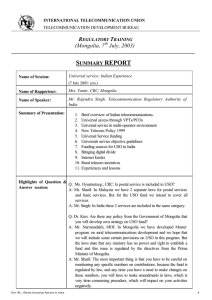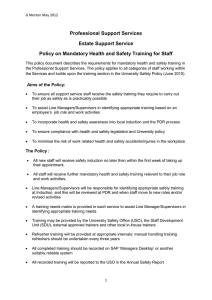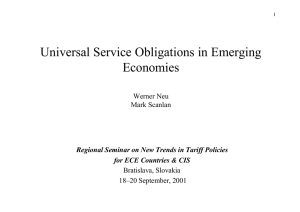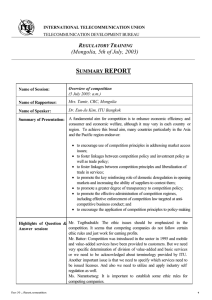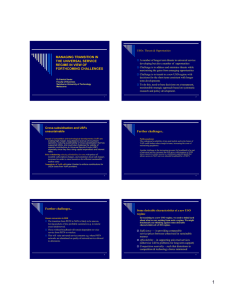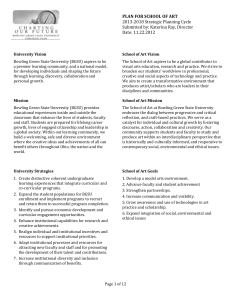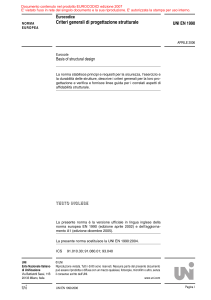S REPORT R
advertisement
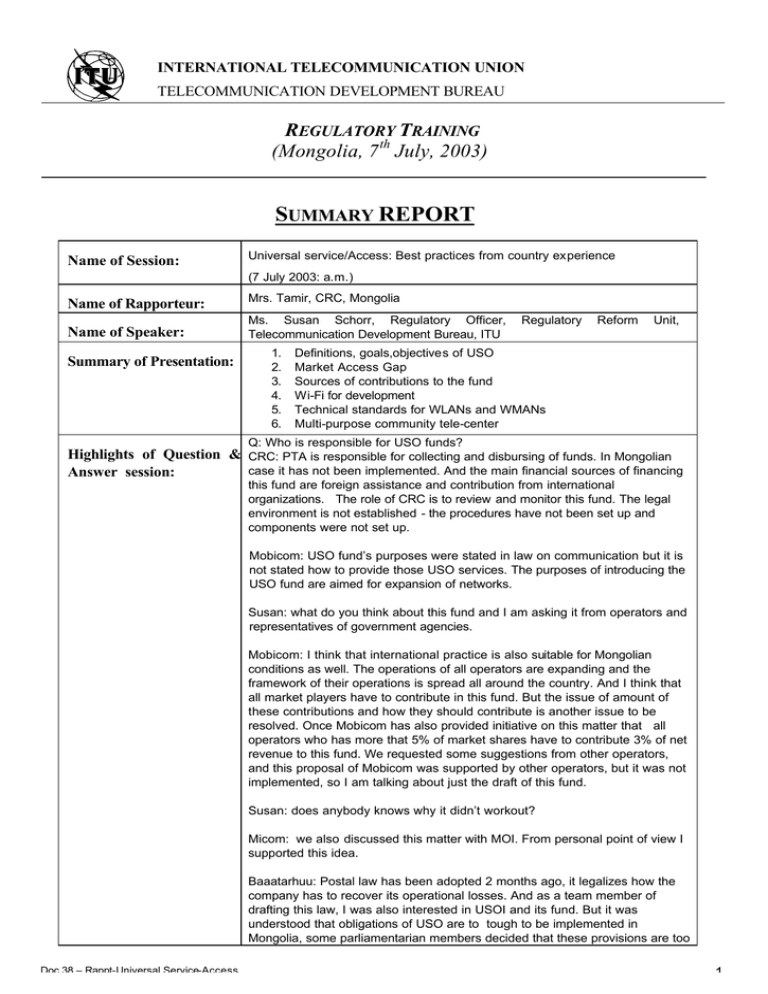
INTERNATIONAL TELECOMMUNICATION UNION TELECOMMUNICATION DEVELOPMENT BUREAU REGULATORY TRAINING (Mongolia, 7 th July, 2003) SUMMARY REPORT Name of Session: Universal service/Access: Best practices from country experience (7 July 2003: a.m.) Name of Rapporteur: Name of Speaker: Summary of Presentation: Mrs. Tamir, CRC, Mongolia Ms. Susan Schorr, Regulatory Officer, Telecommunication Development Bureau, ITU 1. 2. 3. 4. 5. 6. Regulatory Reform Unit, Definitions, goals,objectives of USO Market Access Gap Sources of contributions to the fund Wi-Fi for development Technical standards for WLANs and WMANs Multi-purpose community tele-center Q: Who is responsible for USO funds? Highlights of Question & CRC: PTA is responsible for collecting and disbursing of funds. In Mongolian case it has not been implemented. And the main financial sources of financing Answer session: this fund are foreign assistance and contribution from international organizations. The role of CRC is to review and monitor this fund. The legal environment is not established - the procedures have not been set up and components were not set up. Mobicom: USO fund’s purposes were stated in law on communication but it is not stated how to provide those USO services. The purposes of introducing the USO fund are aimed for expansion of networks. Susan: what do you think about this fund and I am asking it from operators and representatives of government agencies. Mobicom: I think that international practice is also suitable for Mongolian conditions as well. The operations of all operators are expanding and the framework of their operations is spread all around the country. And I think that all market players have to contribute in this fund. But the issue of amount of these contributions and how they should contribute is another issue to be resolved. Once Mobicom has also provided initiative on this matter that all operators who has more that 5% of market shares have to contribute 3% of net revenue to this fund. We requested some suggestions from other operators, and this proposal of Mobicom was supported by other operators, but it was not implemented, so I am talking about just the draft of this fund. Susan: does anybody knows why it didn’t workout? Micom: we also discussed this matter with MOI. From personal point of view I supported this idea. Baaatarhuu: Postal law has been adopted 2 months ago, it legalizes how the company has to recover its operational losses. And as a team member of drafting this law, I was also interested in USOI and its fund. But it was understood that obligations of USO are to tough to be implemented in Mongolia, some parliamentarian members decided that these provisions are too Doc.38 – Rappt-Universal Service-Access 1 tough to make them implement. I think that the provisions on USO have to be included in the legal environment. It is just stated that CRC shall be responsible for regulating this fund. Operators who are participating in the market and providing service which have significant amount of market shares have to make donation to the fund. For the amendments to the law on communication have to be done in order to clarify USO fund. And I hope that the government of Mongolia will revise the issue of USO fund once more time. Mobicom: It was a new issue that parliamentarians at first time heard about, some of them understood and accepted this concept easily. Others said that this government is directed to work on reduction of taxes. But if we collect more subsidies from operators besides on main license fee, it will mean increase of taxes, so in order to facilitate the operators from tax pressure we proposed to include these subsidies in the content of expenses, so they will not taxed. But it didn’t work. Technical University: How do you arrange the increase of teledensity in terms of subscribers when you use Wi-Fi? Sharil: This technology has limitation in terms of bandwidth and capacity to support many users. At most, it can support up to 50 users at any one time but this would depend on the backhaul bandwidth available. Also power is generally limited as the spectrum used is usually shared with scientific instrumentation, industrial devices and medical equipment. However, in the case of Mongolia, you may want to consider using this technology for rural use as there is likely to be less interference in the rural areas. Mongolia could consider using higher power outputs in rural areas through utilization of amplifiers. Susan: I just want to add that the projects of utilization of Wi-Fi technology is being implemented in rural areas. CRC: What is the status quo of postal service? Is it unified or separated in case of USO access? Sharil: In Malaysia postal and other services such as Internet and others are considered to be included in the list of access services. We have 2 separate laws for communication and postal services, but we are working on establishment of unified USO fund. Sinhg: In India the situation is interesting that telecommunication facilities are used to provide postal services and visa verse, so both of them benefit from each other. Recommendations (if any): Doc.38 – Rappt-Universal Service-Access 2
